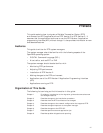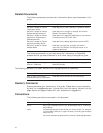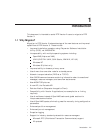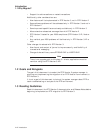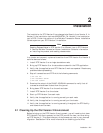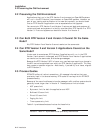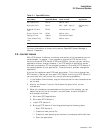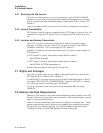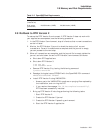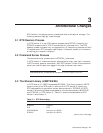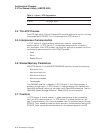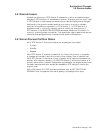
Installation
2.5 Process Quotas
Table 2–1 OpenVMS Limits
Limit Name OpenVMS Name Value for ACP
Value for
Application
AST queue limit ASTlm 2000 or more
Byte count limit Bytlm 32K + (32K * appn †) Not less than
100K
Buffered I/O count
limit
BIOlm Not less than 3 * appn
Direct I/O count limit DIOlm 2000 or more
Paging file limit Pgflquo Not less than 200K
Timer Queue Entry
limit
TQElm 2000 or more
†In the table, appn is the number of application processes.
For more information on these limits, see the OpenVMS System Manager’s
Manual: Essentials.
2.6 Journal Issues
With RTR Version 3 software, the format and content of the transaction journal
have changed. In general, if you upgrade or migrate to RTR Version 3 but
continue to use the RTR Version 2 API and DECnet, you can use your existing
application without change, However, if an RTR Version 2 application stored
and used a transaction ID, the changed transaction ID format of RTR Version 3
can cause problems to that application. To correct such a problem, change the
application.
A journal file resides on each RTR back-end system. This is not a change from
RTR Version 2. Before you shut down RTR Version 2 to bring up RTR Version 3,
you must deal with your journal file, using the following procedure:
1. In the Version 2 environment, stop all clients so that no new transactions can
be initiated.
2. Monitor the Version 2 journal file to check the status of all current
transactions.
3. When all transactions are complete and the journal file is empty, you can
delete the journal file at this point, and shut down the entire Version 2
environment as follows:
a. Shut down RTR applications.
b. Shut down RTR Version 2.
c. Install RTR Version 3.
d. Bring up RTR Version 3 including performing the following tasks:
i Start RTR Version 3.
ii Create the new journal file.
iii Create the new operating environment, for example, define facilities.
iv Start the application.
Installation 2–3



